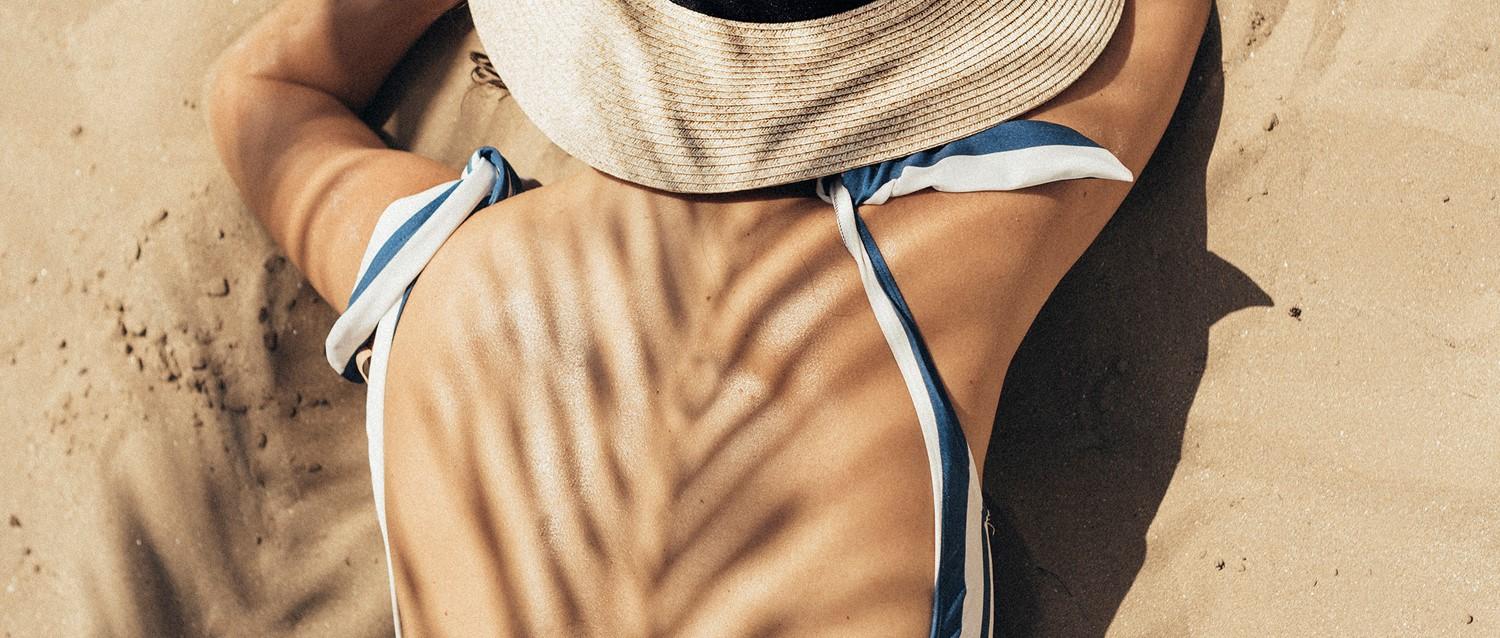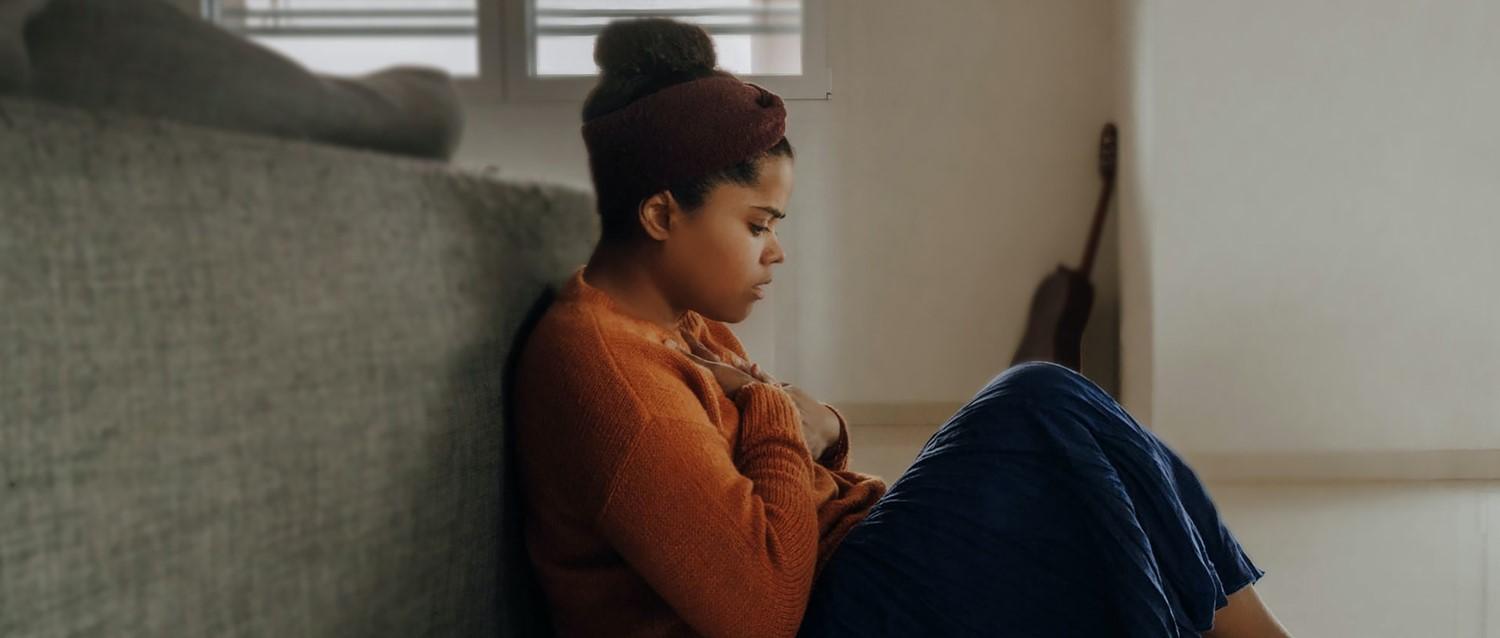
How to deal with negative body image in the summer
Peer reviewed by Dr Sarah Jarvis MBE, FRCGPLast updated by Lydia SmithLast updated 25 Apr 2018
Meets Patient’s editorial guidelines
- DownloadDownload
- Share
- Language
- Discussion
For many of us, the arrival of summer is a welcome respite from the winter months, with the longer, warmer days and sunshine. But for people who struggle with negative body image, summer can be a time of anxiety, low mood and feelings of insecurity - particularly when we're inundated with unhelpful reminders about being 'beach body ready'.
In this article:
Continue reading below
What is negative body image?
The majority of people have days where they feel dissatisfied with their body or insecure about their appearance, but struggling with the way you look in the long term can be an indication of body dysmorphic disorder (BDD). This mental health condition causes people to worry obsessively about perceived 'flaws' in their appearance. This can be a minor physical imperfection, the importance of which they blow out of perspective, or a problem nobody else can see. It can seriously affect all aspects of life and lead to depression and even suicidal thoughts.
What it's like to live with negative body image
Derrian Bradder, 25, has struggled with negative body image over her weight and shape for most of her life.
"I know that I am not as huge as I think I am but I see myself as obese," Bradder explains. "I have no issues with anyone else's size, I just seem to be permanently focused on my own."
Bradder says she tends to stick to 'oversized' clothing to try to cope with the way she feels about her body.
"It is 100 times worse in summer. The thought of not being able to hide in layers and sleeves fills me with dread," she adds. "On the days where it is so hot that I actually have to wear a dress, I am so uncomfortable and so self-conscious that I am mentally exhausted."
Why is negative body image worse in the summer?
Summertime can be difficult for those who struggle with body image, as there is more opportunity to cover yourself in layers and hide your body shape in winter, says psychologist Louise Watson. Sweating may also make people feel more self-conscious.
"If cleavage is showing, women may worry that their breasts are too big or too small," she says. "Shorts may mean some people worry more about cellulite."
"You might get people who think they aren't slim enough worrying about wearing a bikini, but you might get people with eating disorders, such as anorexia, worrying because they're concerned people will notice they are too thin," Watson says.
"People who self-harm may feel self-conscious about scars on their arms or legs," she adds.
Continue reading below
Where does negative body image come from?
There are many factors that influence the way we feel about our appearance, including the media, which can damage our body image by altering our perception of what beauty is supposed to be.
"We are all familiar with the idea of pictures of models being photoshopped, and magazines commenting on women's body shapes and whether they have lost weight or gained weight," Watson explains. "It's all around the objectification of women and there is a focus on their bodies rather than other characteristics."
How does social media affect body image negatively?
Social media can also be problematic for our confidence and body image. Whether it's fitness gurus on Instagram or carefully curated photos of friends on Facebook, we are constantly invited to compare and critique ourselves against others.
A 2015 survey found four of the five most popular forms of social media are damaging to young people's mental health because they exacerbate body image worries, as well as feelings of loneliness and inadequacy.
Past trauma, such as abuse or bullying, can also influence body image, as it can lead to low self-esteem.
Parents who are self-critical about their bodies can also lead to body confidence problems in their offspring because children learn via a process called mirroring, in which they copy behaviours or thought patterns, Watson says.
"If you have a parent who is constantly focusing on their appearance in a negative way then a child can adopt that behaviour," she explains.
Continue reading below
How to cope with negative body image
If body image concerns are having a really negative impact on your day-to-day life, it's worth making an appointment with your GP. Your doctor will be able to assess you for BDD and potentially refer you to a therapist.
"The treatment of choice at the moment would be cognitive behavioural therapy (CBT) for body dysmorphia," Watson reveals.
CBT can help you manage symptoms, such as constantly worrying about your appearance, by helping you identify triggers and altering the way you think.
SSRI antidepressants may also be prescribed to someone suffering from BDD.
The following lifestyle tips may help improve negative body image too:
Less mirror time
"People may look in the mirror for long periods of time, focusing on parts of themselves that they don’t like, so what they are seeing isn’t actually a true representation of themselves but almost like a fairground image with all the negatives blown out of proportion," Watson explains.
Instead, use the mirror briefly and in a functional way - for example, to check your clothes match.
"What happens with people with BDD is that they look in the mirror hoping they will get a positive boost. Unfortunately, that happens very rarely because they are looking at this 'fairground' image, and instead it can trigger anxiety and low mood," Watson says.
Pie charts
An exercise which involves drawing two pie charts can help you recognise the pressure you put on appearance. In the first chart, allocate sections to attributes you look for in a friend, such as humour. Finally, add appearance into a section.
"What you usually find is appearance occupies quite a small section of the pie chart, if at all," Watson says.
Then, fill out the second pie chart in relation to yourself. "What people see is that a much larger section of the pie chart is allocated to body image and there is not much space left for other qualities," Watson explains.
Then ask a friend or family member to write five positive attributes about you. "None of them usually focuses on appearance," Watson says.
Look after yourself
Being kinder to yourself is important. Actively avoiding negative language to talk about yourself can help. Engaging in self-care, whether that's putting on a face mask or spending a few minutes meditating, can also be a great help.
Bradder says she watches online positive affirmation videos to challenge negative thoughts about our body image.
"I usually do this while I remove my make-up and brush my hair as a form of self-care," she says. "I am trying to learn to treat myself gently and recognise the great things my body can do and that I shouldn't be so hard on it."
Cut down on social media
Spending less time on social media reduces the opportunity to compare yourself with others.
Tanya*, 27, who struggles with poor body image, says she took herself off Facebook and altered who she follows on Instagram.
"Now I only follow close friends and a myriad of artists, cartoonists, illustrators, creative types, and travel channels, which all endeavour to inspire and not have a negative mental impact," she says.
Have a good support network
Surrounding yourself with supportive friends or family is also crucial.
"I wasn't able to continue friendships with people whose self-awareness triggered my insecurities, which perhaps was a selfish move, but has left me much happier since finding a safer networking circle and support go-tos," Tanya says.
Keep a journal
Writing down thoughts and feelings can be therapeutic and help get worries out of your head.
"I also have a journal which helps me work out my thoughts and triggers and how, in hindsight, I could handle situations better," Tanya says.
*Names have been changed to protect identities.
Patient picks for Anxiety

Mental health
How to stay body positive over Christmas
For people who struggle with the way they look, or what they eat, Christmas can feel as booby-trapped as the 'Home Alone' house. For those with eating disorders, family support and helplines can be a big help when therapists are unavailable.
by Ellie Broughton

Mental health
How to spot the symptoms of social anxiety
Social anxiety usually starts in your teenage years but can be triggered at any stage of life. It's a serious condition that can affect all aspects of your life, but there are self-care tips and professional therapies that can help and even cure social anxiety. Speaking to a loved one, a support group, or a mental health professional is also important.
by Amberley Davis
Article history
The information on this page is peer reviewed by qualified clinicians.
25 Apr 2018 | Latest version

Ask, share, connect.
Browse discussions, ask questions, and share experiences across hundreds of health topics.

Feeling unwell?
Assess your symptoms online for free
Sign up to the Patient newsletter
Your weekly dose of clear, trustworthy health advice - written to help you feel informed, confident and in control.
By subscribing you accept our Privacy Policy. You can unsubscribe at any time. We never sell your data.